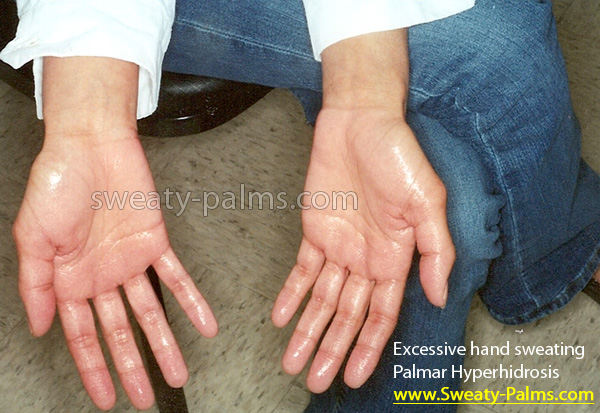Efficient Dermatology Solutions for Excessive Sweating: How to Stop Sweaty Hands and Feet
Understanding the Source of Excessive Sweating and Its Effect On Life
Extreme sweating, likewise called hyperhidrosis, is a problem that affects a substantial part of the population, yet its underlying reasons and ramifications on daily functioning continue to be rather enigmatic. While it is commonly comprehended as a physiological feedback to manage body temperature level, the triggers for too much sweating can vary commonly among people, incorporating not just physical elements however mental and also psychological elements. Moreover, the effect of this condition prolongs beyond simple discomfort, frequently affecting social communications and total top quality of life. By diving right into the source of hyperhidrosis and exploring its diverse results, a much deeper understanding of this prevalent problem can be acquired, losing light on the intricacies that individuals facing extreme sweating browse daily.
Physiology of Sweat Glands
The policy of sweat production, an important physiological process, is mainly managed by the activity of sweat glands distributed throughout the human body. Sweat glands are categorized into 2 main kinds: eccrine and apocrine glands.
When the body temperature level increases, either because of exercise, heats, or psychological anxiety, the nerve system causes the sweat glands to generate sweat. This sweat is made up largely of water and electrolytes like salt and chloride. The procedure of sweat production is crucial for preserving the body's interior temperature level within a narrow, optimum array, highlighting the important duty gland play in human physiology.
Triggers for Excessive Sweating
In understanding the source of excessive sweating, it is essential to recognize the triggers that can bring about this physiological reaction. Too much sweating, likewise referred to as hyperhidrosis, can be prompted by different elements, both physical and environmental. One typical trigger is psychological stress or anxiety, which can boost the body's gland to produce even more sweat than is required for cooling down. Physical physical effort, heats, and spicy foods are likewise recognized to set off too much sweating in people susceptible to this condition. Additionally, specific medical problems like diabetic issues, hyperthyroidism, or menopause can contribute to extreme sweating also.
In addition, medicines such as some antidepressants, opioids, and certain supplements can additionally function as triggers for hyperhidrosis. Comprehending these triggers is important in taking care of extreme sweating efficiently - How to stop sweaty hands. By recognizing and attending to the particular triggers that motivate extreme sweating in a specific, doctor can establish personalized therapy plans to relieve this condition and boost the individual's top quality of life
Medical Conditions Associated
Related to extreme sweating are numerous medical problems that can worsen this physiological feedback. One typical problem is hyperhidrosis, a condition defined by abnormally increased sweating that exceeds the body's thermoregulatory requirements. This can manifest in focal areas like the hands, soles, underarms, or face, impacting an individual's top quality of life due to social embarrassment and discomfort.
In addition, endocrine problems such as hyperthyroidism, diabetes mellitus, and menopausal warm flashes can also result in too much sweating. Hyperthyroidism creates an overproduction of thyroid hormones, speeding up metabolic rate and setting off sweating. Diabetic issues can induce sweating episodes, specifically during hypoglycemic episodes when blood sugar levels go down also reduced. Menopausal warm flashes, credited to hormone changes during menopause, can trigger sudden and intense sweating, often come with by flushing and heart palpitations.
Moreover, infections like endocarditis, consumption, and hiv have been associated with evening sweats, a typical symptom recognized to interfere with sleep and affect total health. These medical problems highlight the diverse series of underlying variables that can contribute to too much sweating, requiring complete assessment and management by medical care experts.
Emotional and Mental Elements

Influence On Social Interactions
Too much sweating can have profound results on an individual's capacity to involve easily in social interactions. The visible indicators of sweat spots or damp patches on garments can lead to humiliation and self-consciousness, creating people to withdraw from social circumstances. This withdrawal can influence connections, restriction social activities, and impede individual and professional growth.

Additionally, the anxiousness and self-confidence concerns stemming from excessive sweating can impact interaction and social skills. Individuals may have a hard time to concentrate on discussions, take part in group activities, or reveal themselves with confidence. This can bring about feelings of isolation and loneliness, as social links come to be testing to keep.
Conclusion

While it is commonly recognized as a physical action to control body temperature, the triggers for excessive sweating can vary extensively amongst people, including not only physical elements but mental and likewise emotional aspects. By delving into the origin creates of hyperhidrosis and exploring its multifaceted results, a much deeper understanding of this pervasive issue can be obtained, losing light on the complexities that people grappling with too much sweating navigate on a daily basis.
Physical physical effort, high temperature levels, and spicy foods are additionally understood to set off excessive sweating in people vulnerable to this problem. By determining and attending to the particular triggers that motivate extreme sweating in a private, health care description companies can develop tailored treatment strategies to ease this condition and boost the person's top quality of life.
Extreme sweating can have extensive effects on an individual's capability to involve comfortably in social interactions.